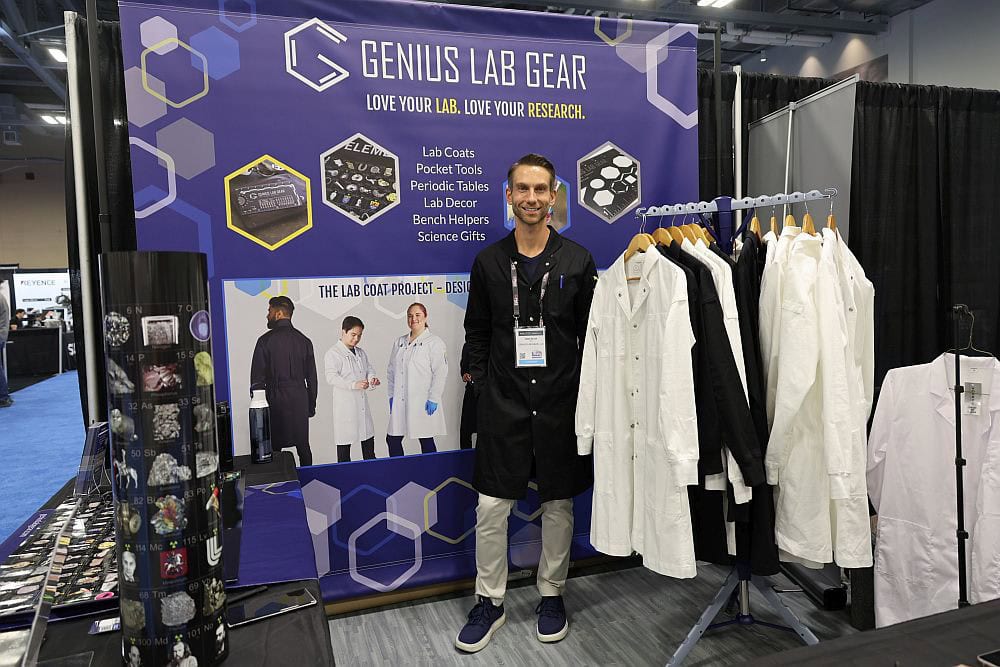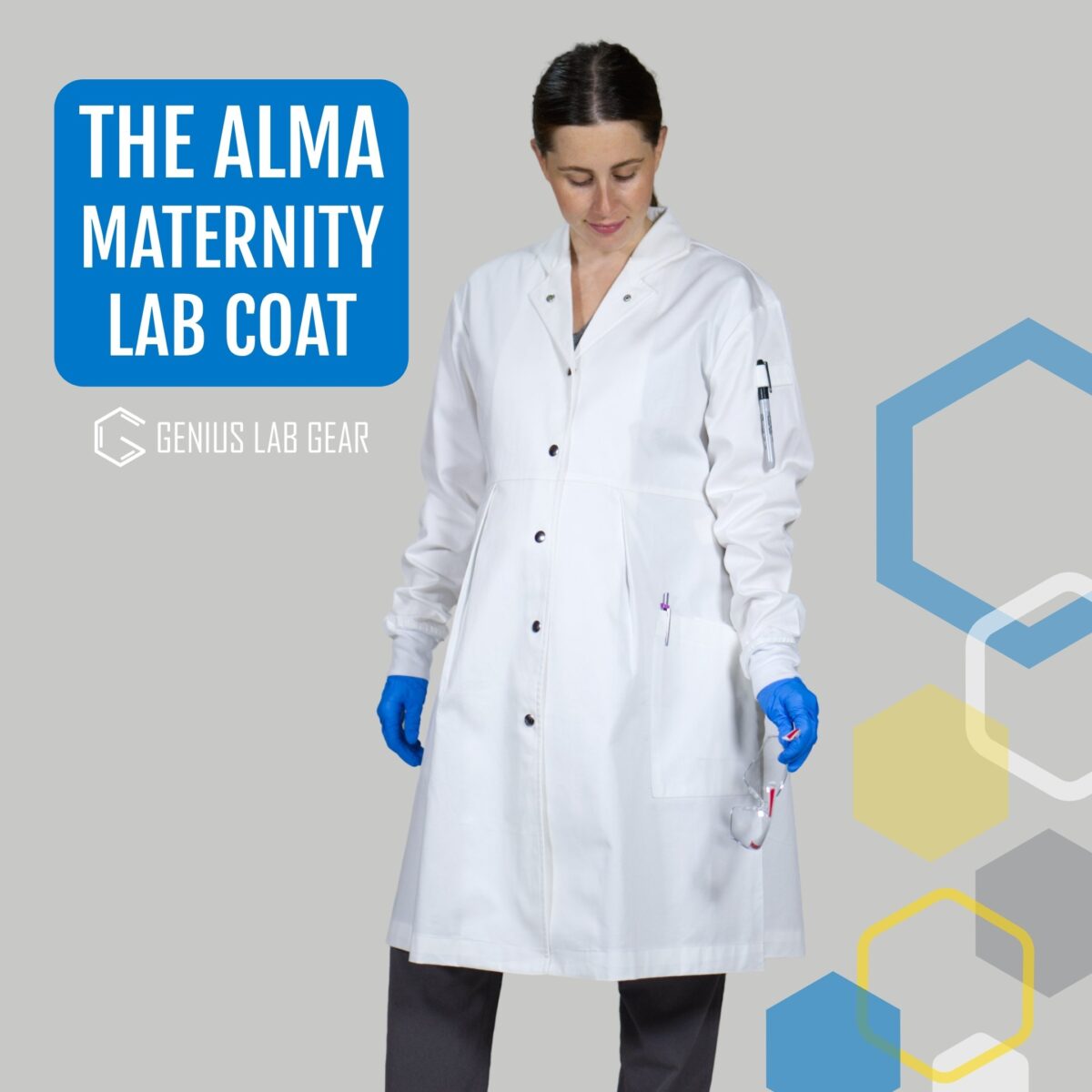
[Image above] Genius Lab Gear founder Derek Miller in his booth at The Advanced Materials Show at MS&T25. Miller and his team created a line of lab coats designed to fit a wider variety of body types. Credit: ACerS
Over the past hundred years, white lab coats have grown into an iconic symbol of scientists and doctors working in professional research and medical settings. Yet even as our view of scientists has become more diverse, the design of lab coats remains trapped in a bygone fashion era that caters to very few body types.
“An average unisex lab coat has a cylindrical profile. … Curvier women have to fit that cylinder to the widest part of their body, [which] leaves the rest of their body swimming in fabric,” explains an article by small business Genius Lab Gear.
Furthermore, typical lab coats have three pockets, which are not enough for “scientists constantly moving around and working with many small tools and samples,” the article says. In addition, “many common lab coat designs leave exposed skin in the most vulnerable areas.”
As a result of these design choices, “96% of women and 87% of men had a problem with the fit of their lab coat around their body, while 93% of women and 89% of men had at least one complaint with the way their sleeves fit,” the article concludes.
These design issues and statistics come from an informal survey that Genius Lab Gear founder Derek Miller conducted in 2022. The survey, which asked approximately 1,500 scientists what they love and hate about their lab coats, was born out of Miller’s frustrations with his own lab coat.
Miller is a former scientist who served as chair of ACerS President’s Council of Student Advisors in 2013. During his time working in both academic and industrial materials labs, he experienced firsthand the challenges of an ill-fitting lab coat, which include wide sleeves that knock over glassware and a low collar that does not protect well against spills.
Miller founded Genius Lab Gear in 2018 to create products that “help make lab work easier,” according to an interview he did on the Beyond Your Science podcast.
“One of my first products was the Pocket Scientist and its variations,” he says, which are laser-cut stainless steel rulers engraved with additional science information, such as fundamental equations and the periodic table.
Following the informal survey about lab coats in 2022, Miller and his teammates started developing a line of lab coats that work well for more body types. In 2023, they launched lines of white and black lab coats for men and women called the Louis and the Curie, respectively, named after famous scientists Louis Pasteur and Marie Curie.
The Louis coats have more room in the shoulders, while the Curie coats flare more at the hips. Both feature a plethora of pockets and loops, and they also have an internal waist belt, knit cuffs, a back pleat, and a collar that can be worn both down as well as buttoned all the way up to the neckline.
Miller left the semiconductor field in 2024 to pursue Genius Lab Gear full time. This commitment allowed him and his teammates to develop the next generation of inclusive lab coats: the Alma Maternity for pregnant and nursing parents.
As explained in a Genius Lab Gear article about the latest lab coat line, numerous respondents in the original informal survey mentioned the total unavailability of a maternity lab coat. So, Miller launched another survey to specifically address maternity lab coats, and the new design was based on those 170 responses.
The Alma coat features several distinct elements compared to the existing Louis and Curie lines:

A model poses with the new Alma Maternity coat. Credit: Genius Lab Gear (published with permission)
- No pockets on the chest. Respondents said that standard chest pockets became difficult to use for pens and utensils due to extra tightness and sensitivity. The Alma coat features extra stitches and loops on its sides to make up for the removal of chest pockets.
- Two panel design with extra pleats. Like other maternity clothes, the Alma coat has a two-panel construction with pleats on the front, which allows the coat to expand during the later stages of pregnancy.
The name Alma was decided by popular vote and refers to Alma Levant Hayden, the first Black woman scientist to gain a scientist position at a science agency in Washington, D.C. (she joined the National Institutes of Health in the 1950s). The word “alma” also means “nourishing” or “nurturing” in Latin, which adds another layer to the aptness of this name for a maternity lab coat, as noted in the Genius Lab Gear article.
Preorders for the Alma Maternity coat will open November 1, and the coats should be ready to ship by November 14.
In an Instagram post, Miller says that the team hopes this coat “will help expecting parents continue their research with less frustration and discomfort if it’s safe to do so and they choose to do so.”
Author
Lisa McDonald
CTT Categories
- Education
Related Posts
Sports-quality ice: From pond side to precision Olympic engineering
February 12, 2026


